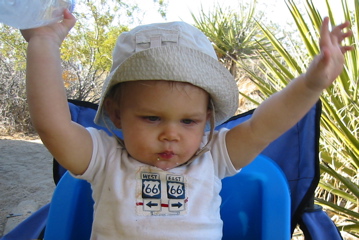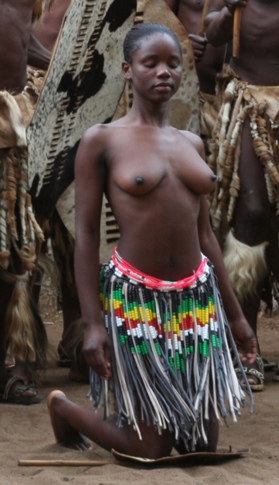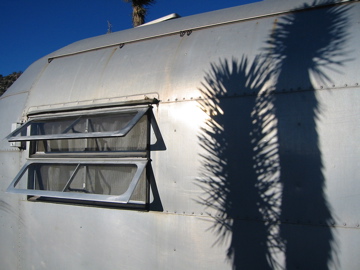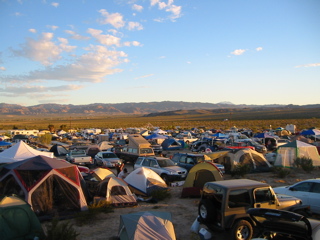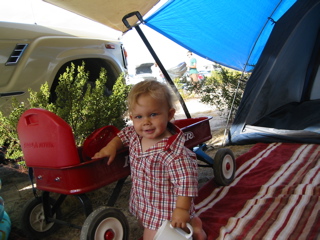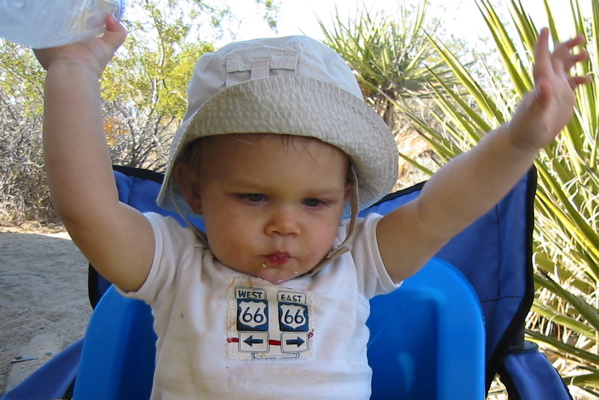
Jasper in Joshua Tree National Park, aged 13 mos. Photo by Author.
1. The Plan
When young Jasper, our first, came to that remarkable, frightening, and eminently enviable age of thirteen months, his manual dexterity having nearly reached a par with his appetite—and my wife too frequently finding her blouse unbuttoned (or rather de-buttoned) in public—I took it upon myself to cure the boy of his once-happy relationship with his mother’s glands. Thereby to introduce him to the wide world beyond. And to liberate us all.
